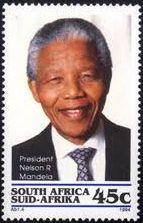The Enduring Legacy of Nelson Mandela

Introduction
Nelson Mandela, a name synonymous with courage, resilience and the fight for freedom, continues to inspire millions around the world. As a leader of the anti-apartheid movement in South Africa, Mandela’s profound impact on social justice and human rights remains relevant today, especially as discussions about racial equality intensify globally. His work paved the way for a democratic South Africa and celebrated the principles of forgiveness and reconciliation.
The Life of Nelson Mandela
Born in 1918 in the village of Mvezo, Mandela’s journey to becoming a global icon began in earnest when he joined the African National Congress (ANC) in 1943. His activism against apartheid, a systematic racial segregation policy in South Africa, led to his arrest in 1962 and subsequent life imprisonment on Robben Island. Despite his incarceration, Mandela’s resolve never weakened; he became a powerful symbol of resistance against oppression.
After 27 years, Mandela was released in 1990, a pivotal moment that marked the beginning of the end of apartheid. Subsequently, he led the ANC in negotiations to dismantle the racist regime, culminating in the first multiracial elections in 1994, where he was elected as South Africa’s first Black president. Mandela’s leadership during this critical transition was characterised by his emphasis on peace, forgiveness, and national unity, establishing a framework that would guide the country toward a more inclusive future.
Global Impact and Recognition
Mandela’s influence extended beyond South Africa. He advocated for peace and human rights on global platforms, earning admiration and recognition worldwide. In 1993, he was awarded the Nobel Peace Prize alongside then-South African President F.W. de Klerk for their efforts in peacefully ending apartheid. His commitment to social justice inspired movements around the globe, making him a symbol of resistance against tyranny and injustice.
Conclusion
Nelson Mandela’s legacy continues to resonate, serving as a reminder of the ongoing struggle for human rights and equality. His life story inspires current and future generations to champion social justice, reminding us that the fight against oppression is a collective responsibility. As we reflect on his contributions, it is crucial to honour his vision by advocating for equality and peace, not only in South Africa but across the globe. In a world still battling racial and social injustices, Mandela’s teachings are more vital than ever.
